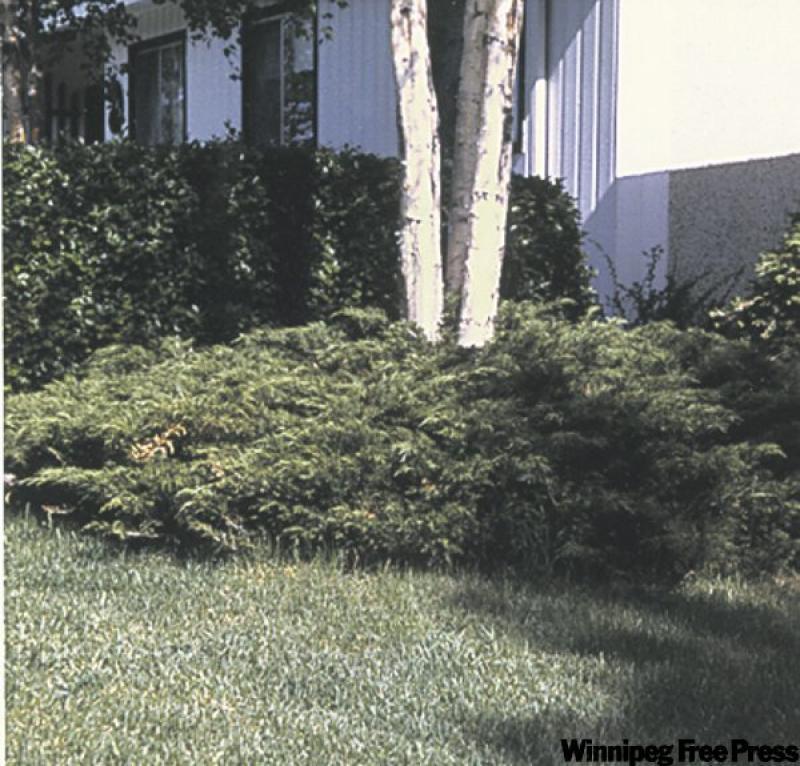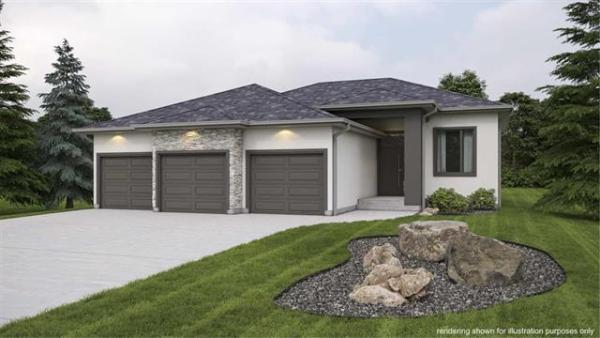Ground covers can serve several functions in addition to helping conserve moisture. They can act as a lawn replacement and they can add an esthetic look to any bed or garden. The texture and colour of the ground cover can make for a more interesting look than a plain mulch. One concern is that some of these ground covers can be very aggressive and you will need to keep them from spreading by burying a barrier.
Some examples of deciduous ground covers are:
![]() Ajuga reptans (Bugleweed). Aggressive, mat-forming perennial. Foliage is a bronze-purple and is usually variegated. Grows very dense and thick to keep weeds out. Needs to be contained.
Ajuga reptans (Bugleweed). Aggressive, mat-forming perennial. Foliage is a bronze-purple and is usually variegated. Grows very dense and thick to keep weeds out. Needs to be contained.
![]() Arctostaphylos uva-ursi (Bearberry or Kinnikinnick). Plants form dense mats of glossy green leaves. Light pink flowers in spring.
Arctostaphylos uva-ursi (Bearberry or Kinnikinnick). Plants form dense mats of glossy green leaves. Light pink flowers in spring.
![]() Bergenia cordifolia (Bergenia or elephant ears). Makes an interesting low maintenance ground cover. Deep green leathery leaves. Great for shady spots.
Bergenia cordifolia (Bergenia or elephant ears). Makes an interesting low maintenance ground cover. Deep green leathery leaves. Great for shady spots.
![]() Aegopodium podgraria (Goutweed or snow-on-the-mountain). Very aggressive ground cover. Pale green leaves variegated with white/cream. Attractive, but make sure you contain this one. It will rapidly spread into areas you don't want it if not controlled. I use commercial grade landscape edging buried at least 8 inches deep to control mine. You can also use cedar shakes.
Aegopodium podgraria (Goutweed or snow-on-the-mountain). Very aggressive ground cover. Pale green leaves variegated with white/cream. Attractive, but make sure you contain this one. It will rapidly spread into areas you don't want it if not controlled. I use commercial grade landscape edging buried at least 8 inches deep to control mine. You can also use cedar shakes.
![]() Galium odoratum (Sweet woodruff). Borderline hardy (zone 4) but I have had mine for years. Grows very well under trees in a sheltered spot. Prefers partial to full shade. Bright green whorled leaves. Tiny white flowers in profusion in spring. Leaves, when crushed, smell like hay. Cover with lots of snow and this plant will come back every year.
Galium odoratum (Sweet woodruff). Borderline hardy (zone 4) but I have had mine for years. Grows very well under trees in a sheltered spot. Prefers partial to full shade. Bright green whorled leaves. Tiny white flowers in profusion in spring. Leaves, when crushed, smell like hay. Cover with lots of snow and this plant will come back every year.
-- Canwest News Service




